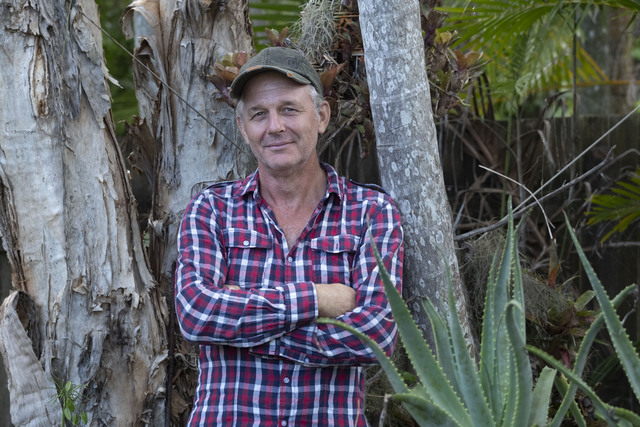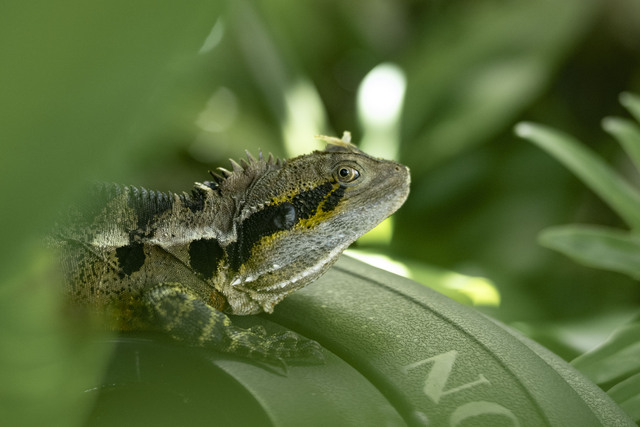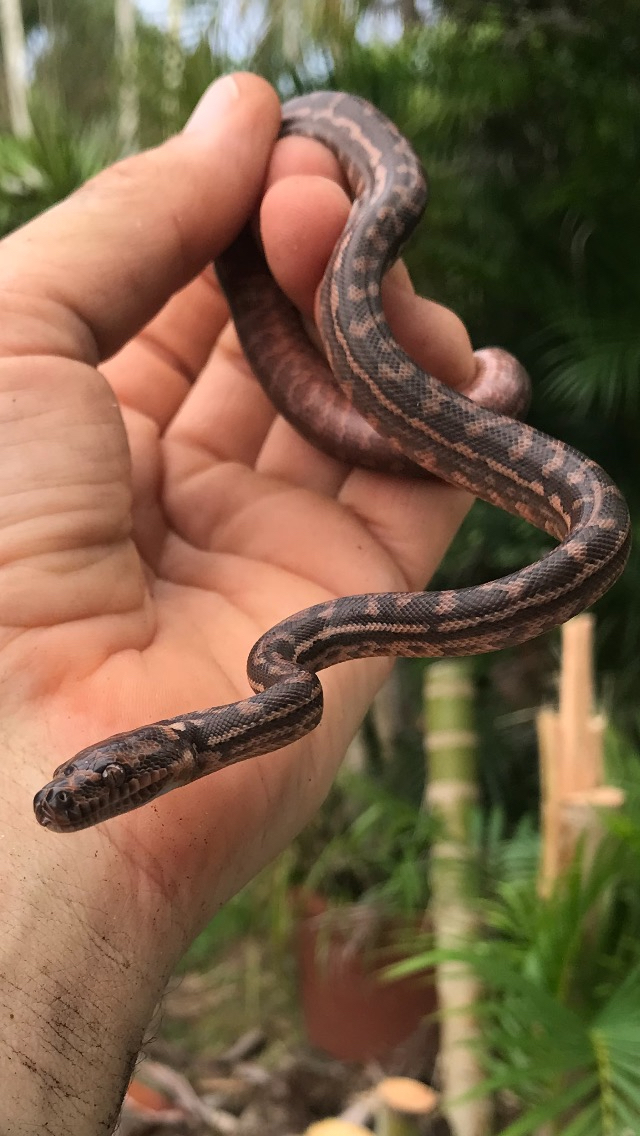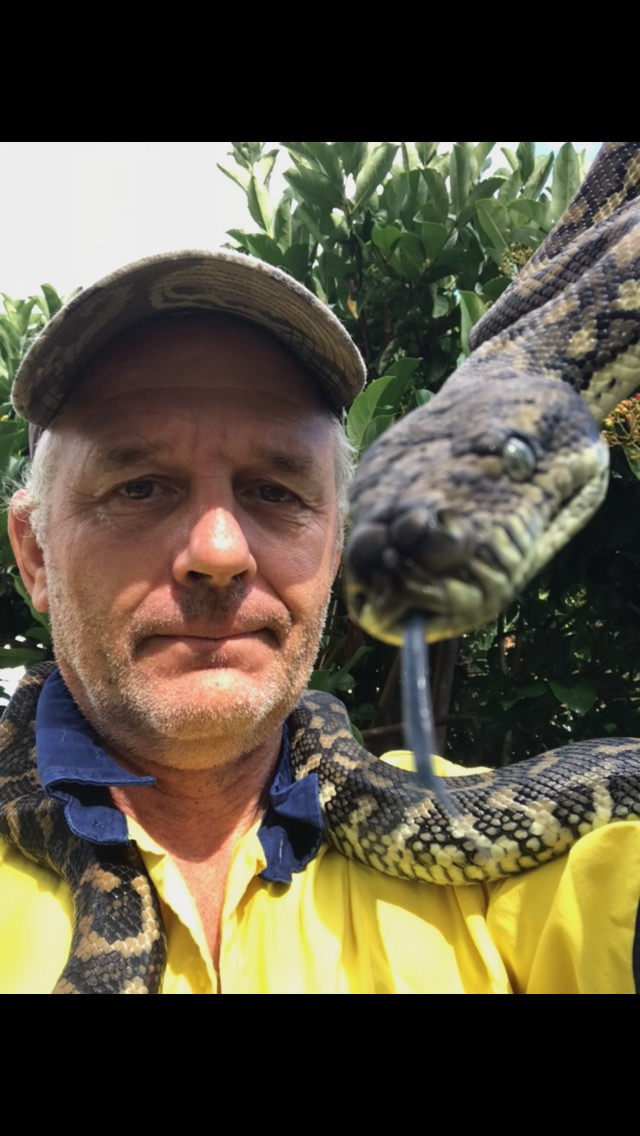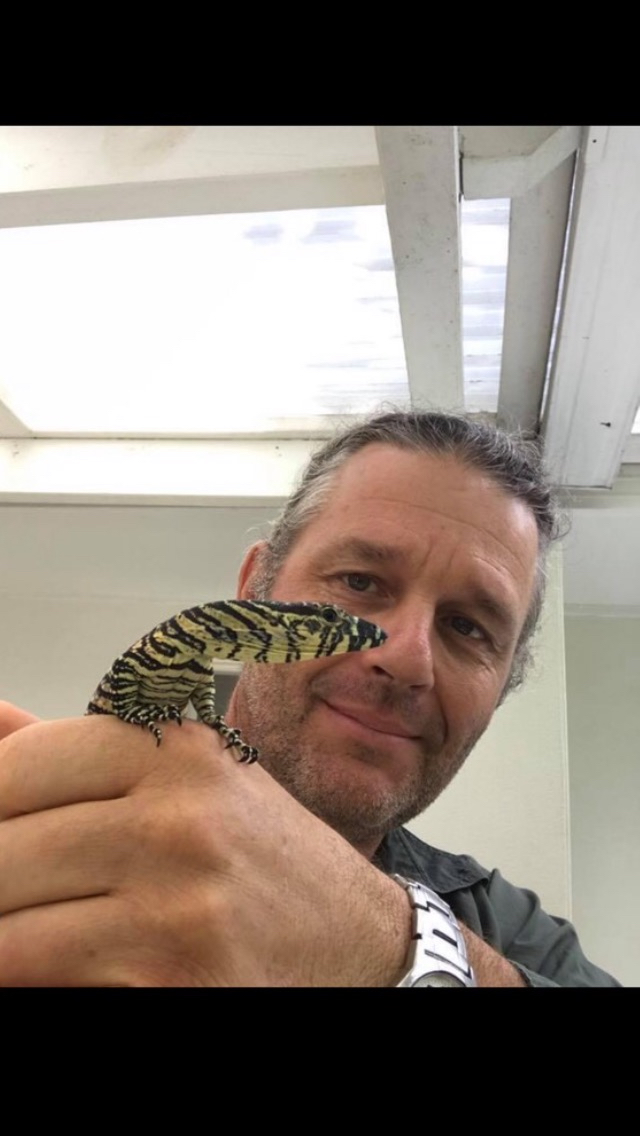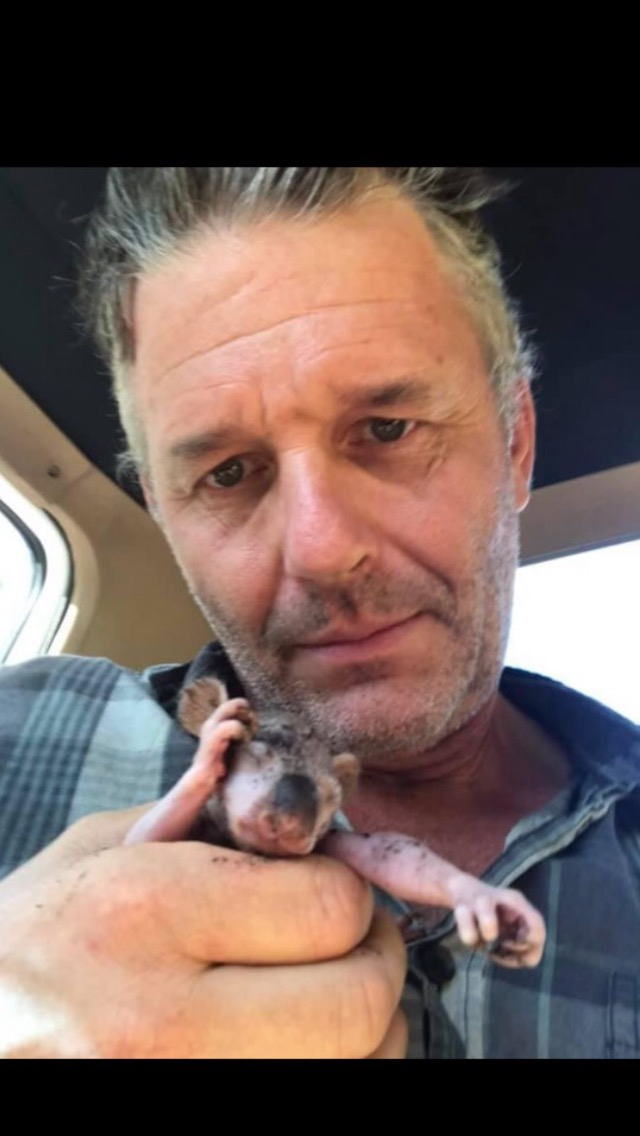Margie Maccoll
They’e not cute and cuddly but lace monitors or goannas, one of the largest monitor lizards in the world, are residents of Noosa and have captured the interest of Wilvos (Wildlife Voluteers Association) wildlife carer Rob Siddall since he was a boy living in England.
Noosa Today spoke to the Tewantin resident and gardener who for almost 25 years has ploughed his energy and enthusiasm into caring for all types of sick and injured reptiles including goannas and snakes along with the occasional wallaby and koala and released them back to the wild as a Wilvos volunteer.
“As a kid I was into dinosaurs, as kids are. There weren’t any dinosaurs around so the closet thing to that was a monitor lizard, but I got a fire salamander.
I didn’t get any goannas until I was in my twenties and I had to give them up. I couldn’t bring mine from England,“ he said.
As fate would have it, in the first year of Rob and his wife Lisa having moved to Australia, on a trip to the markets with his visiting parents, they came across a lace monitor on the road that had been hit by a car. “I scooped him up and took him to the vet. He said he’d rehabilitate him and I thought I’d like to do that, so I joined the Wilvos. I’ve been doing it ever since.“
Since then he’s seen a lot of lizards and pythons, then one day some people reported an injured kangaroo at Kandanga to the Wilvos hotline.
“I went out. There was a baby in the pouch. I slept with the baby in my shirt. By morning when I was going to drop it off to Sylvia (Wilvos chair Sylvia Whiting and specialist wallaby carer), I didn’t want to let it go. She said give it a try. It was wonderful.“
Sadly not all wildlife caring is successful as the wallaby had been, and many animals can’t be rehabilitated and released back to the wild.
“A lot of stuff, you go out and there’s not much you can do. Most of it is cars or dogs or cats. They shake the sh*t out of them and it breaks the spine.
“If they’re hit by cars it shakes their retinas loose, they often go blind – then you can’t do anything for them.
“But you get the odd win and the win is what it’s all about. It’s always worth it.“
Rob urges anyone who sees injured wildlife to help it. “People don’t want to pick them up but they could call Wilvos,“ he said. “The vets don’t charge for looking after wildlife. Some look after them themselves some pass them on to Eumundi (Wildlife Rehabilitation Centre).“
Rob recently released two goannas that had been passed on to him by Sunshine Coast Vets.
Very hardy creatures, lace monitors don’t need a lot of looking after.
From the time eggs are laid the baby lizards face life only on their instincts. Pythons incubate their eggs but once hatched the young are independent.
Rob has hatched a number of eggs over the years, placing python eggs in an incubator until hatched and lizard eggs in a pot with mulch and leaves.
Reptiles can get viruses, but mainly it’s trauma that Rob deals with, most the victims of car strikes.
Depending on their size and the size of their food source reptiles eat only once a week, once a fortnight or even once a month.
“When they’re small they eat lot of insects, other reptiles, other goannas – whatever fits in the mouth, and they eat a lot of carrion – that’s why they get run over,“ Rob said.
Monitors forage for food on the ground or by climbing trees. They detect their prey with a special sense organ in the roof of their mouths called Jacobson’s organ. By flicking their long forked tongue out of their mouths, they transmit scent molecules to this organ.
“If it’s winter you need to keep them warm, here it is warm,“ Rob said.
“They brumate (enter a state of deep sleep). You see big goannas sometimes walk out into the sun and warm up, they need the heat to digest the food.“
Goannas like to eat chickens and eggs and that often brings them into conflict with humans.
“I had one couple of years ago that was shot. It may have been taking chickens or people’s eggs and got shot.
“It came from the vet. It’d been run over, but they removed a bullet from his back so he’d been shot as well. Bit like the Terminator really.
“I think he’d had a feed of a chicken, it’s probably why he was a bit slow getting across the road.“
In 2005, University of Melbourne researchers discovered that all monitors may be somewhat venomous. Previously, bites inflicted by monitors were thought to be prone to infection because of bacteria in their mouths, but researchers showed that the immediate effects were more likely caused by envenomation. Bites on the hand by lace monitors have been observed to cause swelling within minutes, localised disruption of blood clotting, and shooting pain up to the elbow, which can often last for several hours.
Over the years Rob has had the occasional bite which “really stings“.
“A lot of them are quite placid. Pythons are quite chilled. You pick them up, they treat you like a tree,“ he said.
“They do get used to you but my job is not to get too close to them. You worry if they become too used to you they may lose their instinct. You don’t want them to think here comes a person it’ll feed me.“
After bringing them back to optimal health Rob seeks out the best available place to release them with a water source, food source, tree hollows to hide and sleep in and relative safety.
“The larger ones have their territories and like to go back to their territories.
“It’s finding somewhere suitable to let them go. You don’t want to put them back where they came from, if they were attacked by dogs, or hit by a car.
“It’s not just people’s pets, it’s habitat loss.
“I always think little ones have it a bit harder. They may get eaten by kookaburras.
“You get them up to scratch and think there’s only 10 per cent chance they’ll grow up, but if he makes it he’s going to be a lot happier.
“You try to let them go into something where they can hide and be safe.
“They want to be wild, you just hope they don’t get eaten.
“You let them go and you don’t see them again, you don’t know.“
If you see sick or injured wildlife you can call the Wilvos 24 hour hotline on 5441 6200. For more information visit wolves.org.au

